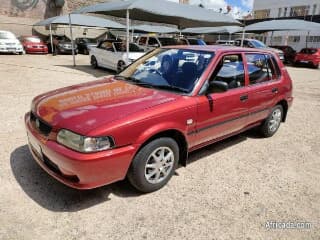High-grade Toyota Tazz Engine for Sale: Find Yours Today!
High-grade Toyota Tazz Engine for Sale: Find Yours Today!
Blog Article
Engine Purchasing Professional Tips on Picking the Right Engine for Your Particular Requirements
Choosing the ideal engine for your details demands entails an intricate interplay of factors that go beyond mere horsepower figures. From power result to fuel performance, the decision-making procedure can be discouraging. Recognizing the subtleties of engine kinds, dimensions, and their compatibility with your vehicle is important. Nevertheless, there are skilled pointers that can aid navigate this terrain with confidence. By delving into the complexities of power versus effectiveness, assessing fuel scores, and budgeting for long-lasting costs, one can really optimize their engine selection.
Power Vs. Efficiency: Discovering the Balance

When selecting an engine, it is essential to strike a balance between power and effectiveness to fulfill your specific demands effectively. Power describes the engine's capability to create energy for propulsion, establishing aspects like acceleration, towing capacity, and overall efficiency (Toyota Tazz Engine For Sale). On the other hand, performance connects to how well the engine makes use of gas to create power, affecting factors such as fuel economic situation and environmental friendliness
Attaining the appropriate balance between power and performance is necessary due to the fact that an engine that is too effective might eat excessive fuel, bring about greater operating prices and unneeded strain on the atmosphere. Alternatively, an engine that focuses on efficiency over power may cause sluggish performance, specifically sought after situations like pulling heavy lots or driving uphill.
To make an informed choice, think about aspects such as your normal driving problems, the desired usage of the automobile, and your individual choices. By examining your requirements and top priorities, you can choose an engine that strikes the best balance in between power and efficiency, making sure optimum performance while minimizing ecological influence and operating prices.
Recognizing Engine Size and Type

Typical engine kinds consist of inline engines, V engines, and rotary engines, each with its one-of-a-kind advantages and drawbacks. Understanding the interaction between engine dimension and kind is essential in picking an engine that straightens with your particular requirements and top priorities, whether it be power, effectiveness, or an equilibrium of both.
Consider Your Car's Needs
If you are looking for an engine for a durable vehicle that will be used for towing, you will require an effective engine with high torque abilities. On the various other hand, if you are selecting an engine for a portable vehicle mostly utilized for city commuting, fuel efficiency may be a much more essential aspect to take into consideration.

Evaluating Gas Effectiveness Ratings
Assessing fuel efficiency scores is a vital aspect of selecting the right engine for your vehicle, making certain price financial savings and ecological sustainability. Gas efficiency rankings, commonly measured in miles per gallon (MPG) for gasoline engines or kilowatt-hours per 100 miles (kWh/100 miles) for electric engines, indicate how much a lorry can take a trip on a details amount of gas or electrical energy. Greater MPG or lower kWh/100 miles worths represent more effective engines, converting to minimized fuel redirected here costs and reduced carbon emissions.
Additionally, contrast various engine alternatives within the same lorry class to recognize the most economical choice. Factors such as engine dimension, weight, the rules of aerodynamics, and crossbreed or electric capabilities can all influence fuel performance.
Budgeting for Long-Term Costs
Strategically intending for long-term expenses is important when picking an engine, guaranteeing financial sustainability over the car's lifespan. While the preliminary purchase price of an engine is a considerable variable, it is critical to think about the long-term costs linked with maintenance, fixings, and gas usage.
In addition, looking into the accessibility and price of substitute parts for the picked engine is essential in budget plan preparation. Engines with affordable and readily available components can substantially influence lasting upkeep costs. In addition, taking into consideration the engine's toughness and expected life-span can aid prevent unanticipated replacement prices published here in the future. By very carefully budgeting for these lasting costs and factoring them into the decision-making process, individuals can pick an engine that not only satisfies their prompt demands yet additionally remains affordable throughout its lifespan.
Conclusion
In conclusion, choosing the ideal engine for your details requirements calls for balancing power and effectiveness, understanding engine dimension and kind, considering your vehicle's needs, examining fuel effectiveness rankings, and budgeting for lasting expenses. By carefully thinking about these factors, you can ensure that you pick an engine that meets your needs and supplies ideal performance for your lorry.
To additionally fine-tune the selection procedure of an engine that strikes the optimum balance in between power and efficiency, it is important to delve into the complexities of recognizing engine size and kind. Engine dimension refers to the overall quantity of air and gas that can be pushed through the engine cylinders. Common engine types consist of inline engines, V engines, and rotary engines, each with its one-of-a-kind benefits and downsides. Recognizing the interplay in between engine size and kind is essential in choosing an engine that straightens with your specific requirements and concerns, whether it be power, performance, or a balance of both.
Gas efficiency scores, generally gauged in miles per gallon (MPG) for gas engines or kilowatt-hours per 100 miles (kWh/100 miles) for electric engines, show exactly how much a lorry can take a go to my site trip on a details amount of fuel or power.
Report this page